Bank Transfers
Mobile Wallets
Cash Transfers
Online Money Transfer Services
Individuals
Businesses
Non-Profit Organizations
Domestic Remittances
International Remittances
Employed Individuals
Unemployed Individuals
Immigrants
North America
Europe
South America
Asia Pacific
Middle East and Africa
North America Outlook (USD Billion, 2019-2035)
North America Remittance Market by Transfer Method Type
Bank Transfers
Mobile Wallets
Cash Transfers
Online Money Transfer Services
North America Remittance Market by End User Type
Individuals
Businesses
Non-Profit Organizations
North America Remittance Market by Destination Type
Domestic Remittances
International Remittances
North America Remittance Market by Payer Type
Employed Individuals
Unemployed Individuals
Immigrants
North America Remittance Market by Regional Type
US
Canada
US Outlook (USD Billion, 2019-2035)
US Remittance Market by Transfer Method Type
Bank Transfers
Mobile Wallets
Cash Transfers
Online Money Transfer Services
US Remittance Market by End User Type
Individuals
Businesses
Non-Profit Organizations
US Remittance Market by Destination Type
Domestic Remittances
International Remittances
US Remittance Market by Payer Type
Employed Individuals
Unemployed Individuals
Immigrants
CANADA Outlook (USD Billion, 2019-2035)
CANADA Remittance Market by Transfer Method Type
Bank Transfers
Mobile Wallets
Cash Transfers
Online Money Transfer Services
CANADA Remittance Market by End User Type
Individuals
Businesses
Non-Profit Organizations
CANADA Remittance Market by Destination Type
Domestic Remittances
International Remittances
CANADA Remittance Market by Payer Type
Employed Individuals
Unemployed Individuals
Immigrants
Europe Outlook (USD Billion, 2019-2035)
Europe Remittance Market by Transfer Method Type
Bank Transfers
Mobile Wallets
Cash Transfers
Online Money Transfer Services
Europe Remittance Market by End User Type
Individuals
Businesses
Non-Profit Organizations
Europe Remittance Market by Destination Type
Domestic Remittances
International Remittances
Europe Remittance Market by Payer Type
Employed Individuals
Unemployed Individuals
Immigrants
Europe Remittance Market by Regional Type
Germany
UK
France
Russia
Italy
Spain
Rest of Europe
GERMANY Outlook (USD Billion, 2019-2035)
GERMANY Remittance Market by Transfer Method Type
Bank Transfers
Mobile Wallets
Cash Transfers
Online Money Transfer Services
GERMANY Remittance Market by End User Type
Individuals
Businesses
Non-Profit Organizations
GERMANY Remittance Market by Destination Type
Domestic Remittances
International Remittances
GERMANY Remittance Market by Payer Type
Employed Individuals
Unemployed Individuals
Immigrants
UK Outlook (USD Billion, 2019-2035)
UK Remittance Market by Transfer Method Type
Bank Transfers
Mobile Wallets
Cash Transfers
Online Money Transfer Services
UK Remittance Market by End User Type
Individuals
Businesses
Non-Profit Organizations
UK Remittance Market by Destination Type
Domestic Remittances
International Remittances
UK Remittance Market by Payer Type
Employed Individuals
Unemployed Individuals
Immigrants
FRANCE Outlook (USD Billion, 2019-2035)
FRANCE Remittance Market by Transfer Method Type
Bank Transfers
Mobile Wallets
Cash Transfers
Online Money Transfer Services
FRANCE Remittance Market by End User Type
Individuals
Businesses
Non-Profit Organizations
FRANCE Remittance Market by Destination Type
Domestic Remittances
International Remittances
FRANCE Remittance Market by Payer Type
Employed Individuals
Unemployed Individuals
Immigrants
RUSSIA Outlook (USD Billion, 2019-2035)
RUSSIA Remittance Market by Transfer Method Type
Bank Transfers
Mobile Wallets
Cash Transfers
Online Money Transfer Services
RUSSIA Remittance Market by End User Type
Individuals
Businesses
Non-Profit Organizations
RUSSIA Remittance Market by Destination Type
Domestic Remittances
International Remittances
RUSSIA Remittance Market by Payer Type
Employed Individuals
Unemployed Individuals
Immigrants
ITALY Outlook (USD Billion, 2019-2035)
ITALY Remittance Market by Transfer Method Type
Bank Transfers
Mobile Wallets
Cash Transfers
Online Money Transfer Services
ITALY Remittance Market by End User Type
Individuals
Businesses
Non-Profit Organizations
ITALY Remittance Market by Destination Type
Domestic Remittances
International Remittances
ITALY Remittance Market by Payer Type
Employed Individuals
Unemployed Individuals
Immigrants
SPAIN Outlook (USD Billion, 2019-2035)
SPAIN Remittance Market by Transfer Method Type
Bank Transfers
Mobile Wallets
Cash Transfers
Online Money Transfer Services
SPAIN Remittance Market by End User Type
Individuals
Businesses
Non-Profit Organizations
SPAIN Remittance Market by Destination Type
Domestic Remittances
International Remittances
SPAIN Remittance Market by Payer Type
Employed Individuals
Unemployed Individuals
Immigrants
REST OF EUROPE Outlook (USD Billion, 2019-2035)
REST OF EUROPE Remittance Market by Transfer Method Type
Bank Transfers
Mobile Wallets
Cash Transfers
Online Money Transfer Services
REST OF EUROPE Remittance Market by End User Type
Individuals
Businesses
Non-Profit Organizations
REST OF EUROPE Remittance Market by Destination Type
Domestic Remittances
International Remittances
REST OF EUROPE Remittance Market by Payer Type
Employed Individuals
Unemployed Individuals
Immigrants
APAC Outlook (USD Billion, 2019-2035)
APAC Remittance Market by Transfer Method Type
Bank Transfers
Mobile Wallets
Cash Transfers
Online Money Transfer Services
APAC Remittance Market by End User Type
Individuals
Businesses
Non-Profit Organizations
APAC Remittance Market by Destination Type
Domestic Remittances
International Remittances
APAC Remittance Market by Payer Type
Employed Individuals
Unemployed Individuals
Immigrants
APAC Remittance Market by Regional Type
China
India
Japan
South Korea
Malaysia
Thailand
Indonesia
Rest of APAC
CHINA Outlook (USD Billion, 2019-2035)
CHINA Remittance Market by Transfer Method Type
Bank Transfers
Mobile Wallets
Cash Transfers
Online Money Transfer Services
CHINA Remittance Market by End User Type
Individuals
Businesses
Non-Profit Organizations
CHINA Remittance Market by Destination Type
Domestic Remittances
International Remittances
CHINA Remittance Market by Payer Type
Employed Individuals
Unemployed Individuals
Immigrants
INDIA Outlook (USD Billion, 2019-2035)
INDIA Remittance Market by Transfer Method Type
Bank Transfers
Mobile Wallets
Cash Transfers
Online Money Transfer Services
INDIA Remittance Market by End User Type
Individuals
Businesses
Non-Profit Organizations
INDIA Remittance Market by Destination Type
Domestic Remittances
International Remittances
INDIA Remittance Market by Payer Type
Employed Individuals
Unemployed Individuals
Immigrants
JAPAN Outlook (USD Billion, 2019-2035)
JAPAN Remittance Market by Transfer Method Type
Bank Transfers
Mobile Wallets
Cash Transfers
Online Money Transfer Services
JAPAN Remittance Market by End User Type
Individuals
Businesses
Non-Profit Organizations
JAPAN Remittance Market by Destination Type
Domestic Remittances
International Remittances
JAPAN Remittance Market by Payer Type
Employed Individuals
Unemployed Individuals
Immigrants
SOUTH KOREA Outlook (USD Billion, 2019-2035)
SOUTH KOREA Remittance Market by Transfer Method Type
Bank Transfers
Mobile Wallets
Cash Transfers
Online Money Transfer Services
SOUTH KOREA Remittance Market by End User Type
Individuals
Businesses
Non-Profit Organizations
SOUTH KOREA Remittance Market by Destination Type
Domestic Remittances
International Remittances
SOUTH KOREA Remittance Market by Payer Type
Employed Individuals
Unemployed Individuals
Immigrants
MALAYSIA Outlook (USD Billion, 2019-2035)
MALAYSIA Remittance Market by Transfer Method Type
Bank Transfers
Mobile Wallets
Cash Transfers
Online Money Transfer Services
MALAYSIA Remittance Market by End User Type
Individuals
Businesses
Non-Profit Organizations
MALAYSIA Remittance Market by Destination Type
Domestic Remittances
International Remittances
MALAYSIA Remittance Market by Payer Type
Employed Individuals
Unemployed Individuals
Immigrants
THAILAND Outlook (USD Billion, 2019-2035)
THAILAND Remittance Market by Transfer Method Type
Bank Transfers
Mobile Wallets
Cash Transfers
Online Money Transfer Services
THAILAND Remittance Market by End User Type
Individuals
Businesses
Non-Profit Organizations
THAILAND Remittance Market by Destination Type
Domestic Remittances
International Remittances
THAILAND Remittance Market by Payer Type
Employed Individuals
Unemployed Individuals
Immigrants
INDONESIA Outlook (USD Billion, 2019-2035)
INDONESIA Remittance Market by Transfer Method Type
Bank Transfers
Mobile Wallets
Cash Transfers
Online Money Transfer Services
INDONESIA Remittance Market by End User Type
Individuals
Businesses
Non-Profit Organizations
INDONESIA Remittance Market by Destination Type
Domestic Remittances
International Remittances
INDONESIA Remittance Market by Payer Type
Employed Individuals
Unemployed Individuals
Immigrants
REST OF APAC Outlook (USD Billion, 2019-2035)
REST OF APAC Remittance Market by Transfer Method Type
Bank Transfers
Mobile Wallets
Cash Transfers
Online Money Transfer Services
REST OF APAC Remittance Market by End User Type
Individuals
Businesses
Non-Profit Organizations
REST OF APAC Remittance Market by Destination Type
Domestic Remittances
International Remittances
REST OF APAC Remittance Market by Payer Type
Employed Individuals
Unemployed Individuals
Immigrants
South America Outlook (USD Billion, 2019-2035)
South America Remittance Market by Transfer Method Type
Bank Transfers
Mobile Wallets
Cash Transfers
Online Money Transfer Services
South America Remittance Market by End User Type
Individuals
Businesses
Non-Profit Organizations
South America Remittance Market by Destination Type
Domestic Remittances
International Remittances
South America Remittance Market by Payer Type
Employed Individuals
Unemployed Individuals
Immigrants
South America Remittance Market by Regional Type
Brazil
Mexico
Argentina
Rest of South America
BRAZIL Outlook (USD Billion, 2019-2035)
BRAZIL Remittance Market by Transfer Method Type
Bank Transfers
Mobile Wallets
Cash Transfers
Online Money Transfer Services
BRAZIL Remittance Market by End User Type
Individuals
Businesses
Non-Profit Organizations
BRAZIL Remittance Market by Destination Type
Domestic Remittances
International Remittances
BRAZIL Remittance Market by Payer Type
Employed Individuals
Unemployed Individuals
Immigrants
MEXICO Outlook (USD Billion, 2019-2035)
MEXICO Remittance Market by Transfer Method Type
Bank Transfers
Mobile Wallets
Cash Transfers
Online Money Transfer Services
MEXICO Remittance Market by End User Type
Individuals
Businesses
Non-Profit Organizations
MEXICO Remittance Market by Destination Type
Domestic Remittances
International Remittances
MEXICO Remittance Market by Payer Type
Employed Individuals
Unemployed Individuals
Immigrants
ARGENTINA Outlook (USD Billion, 2019-2035)
ARGENTINA Remittance Market by Transfer Method Type
Bank Transfers
Mobile Wallets
Cash Transfers
Online Money Transfer Services
ARGENTINA Remittance Market by End User Type
Individuals
Businesses
Non-Profit Organizations
ARGENTINA Remittance Market by Destination Type
Domestic Remittances
International Remittances
ARGENTINA Remittance Market by Payer Type
Employed Individuals
Unemployed Individuals
Immigrants
REST OF SOUTH AMERICA Outlook (USD Billion, 2019-2035)
REST OF SOUTH AMERICA Remittance Market by Transfer Method Type
Bank Transfers
Mobile Wallets
Cash Transfers
Online Money Transfer Services
REST OF SOUTH AMERICA Remittance Market by End User Type
Individuals
Businesses
Non-Profit Organizations
REST OF SOUTH AMERICA Remittance Market by Destination Type
Domestic Remittances
International Remittances
REST OF SOUTH AMERICA Remittance Market by Payer Type
Employed Individuals
Unemployed Individuals
Immigrants
MEA Outlook (USD Billion, 2019-2035)
MEA Remittance Market by Transfer Method Type
Bank Transfers
Mobile Wallets
Cash Transfers
Online Money Transfer Services
MEA Remittance Market by End User Type
Individuals
Businesses
Non-Profit Organizations
MEA Remittance Market by Destination Type
Domestic Remittances
International Remittances
MEA Remittance Market by Payer Type
Employed Individuals
Unemployed Individuals
Immigrants
MEA Remittance Market by Regional Type
GCC Countries
South Africa
Rest of MEA
GCC COUNTRIES Outlook (USD Billion, 2019-2035)
GCC COUNTRIES Remittance Market by Transfer Method Type
Bank Transfers
Mobile Wallets
Cash Transfers
Online Money Transfer Services
GCC COUNTRIES Remittance Market by End User Type
Individuals
Businesses
Non-Profit Organizations
GCC COUNTRIES Remittance Market by Destination Type
Domestic Remittances
International Remittances
GCC COUNTRIES Remittance Market by Payer Type
Employed Individuals
Unemployed Individuals
Immigrants
SOUTH AFRICA Outlook (USD Billion, 2019-2035)
SOUTH AFRICA Remittance Market by Transfer Method Type
Bank Transfers
Mobile Wallets
Cash Transfers
Online Money Transfer Services
SOUTH AFRICA Remittance Market by End User Type
Individuals
Businesses
Non-Profit Organizations
SOUTH AFRICA Remittance Market by Destination Type
Domestic Remittances
International Remittances
SOUTH AFRICA Remittance Market by Payer Type
Employed Individuals
Unemployed Individuals
Immigrants
REST OF MEA Outlook (USD Billion, 2019-2035)
REST OF MEA Remittance Market by Transfer Method Type
Bank Transfers
Mobile Wallets
Cash Transfers
Online Money Transfer Services
REST OF MEA Remittance Market by End User Type
Individuals
Businesses
Non-Profit Organizations
REST OF MEA Remittance Market by Destination Type
Domestic Remittances
International Remittances
REST OF MEA Remittance Market by Payer Type
Employed Individuals
Unemployed Individuals
Immigrants


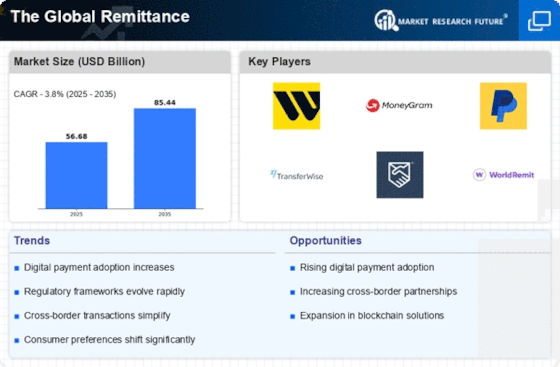
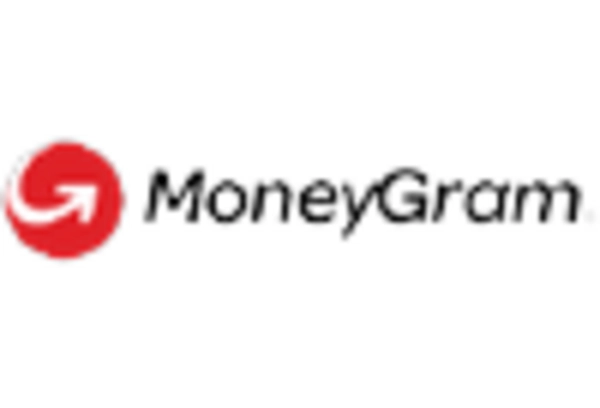


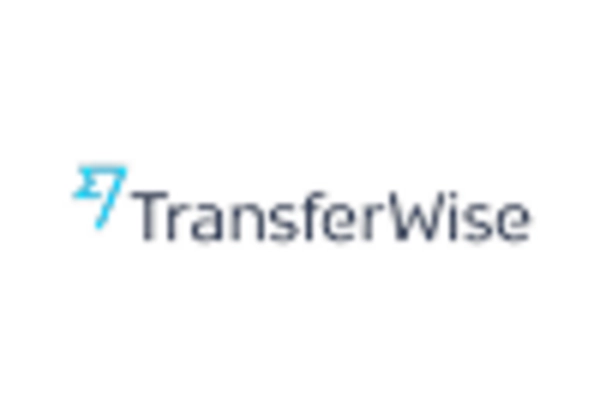
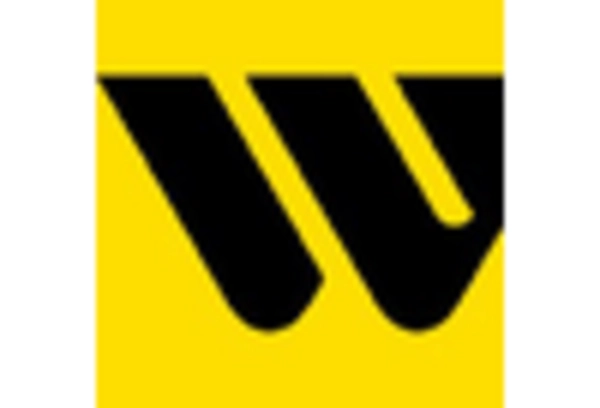
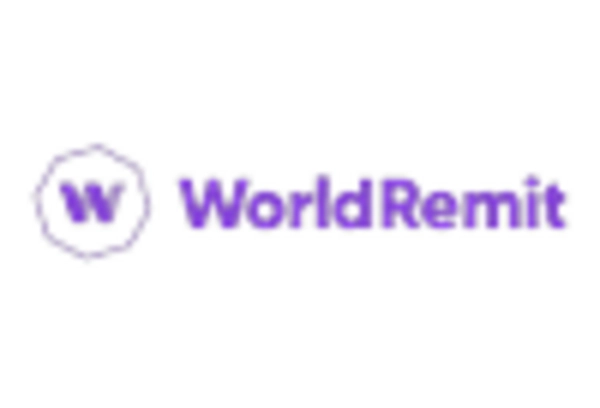









Leave a Comment